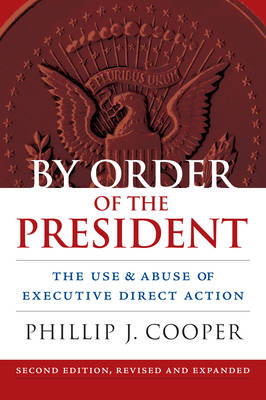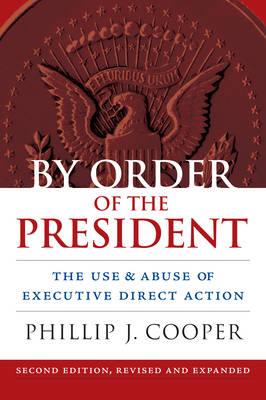
- Retrait gratuit dans votre magasin Club
- 7.000.000 titres dans notre catalogue
- Payer en toute sécurité
- Toujours un magasin près de chez vous
- Retrait gratuit dans votre magasin Club
- 7.000.000 titres dans notre catalogue
- Payer en toute sécurité
- Toujours un magasin près de chez vous
Description
Scholars and citizens alike have endlessly debated the proper limits of presidential action within our democracy. Yet few have truly understood the nature of the president's special powers and their impact on American life. In this volume, noted scholar Phillip Cooper offers a cogent guide to these powers and shows how presidents from George Washington to George W. Bush have used and abused them in trying to realize their visions for the nation. As Cooper reveals, there has been virtually no significant policy area or level of government left untouched by the application of these presidential "power tools." Whether seeking to regulate the economy, committing troops to battle without a congressional declaration of war, or blocking commercial access to federal lands, presidents have wielded these powers to achieve their goals, often in ways that seem to fly in the face of true representative government. Cooper defines the different forms these powers take--executive orders, presidential memoranda, proclamations, national security directives, and signing statements--demonstrates their uses, critiques their strengths and dangers, and shows how they have changed over time. Cooper calls on events in American history with which we are all familiar but whose implications may have escaped us. Here are Washington's "Neutrality Proclamation," Lincoln's Emancipation Proclamation, and the more than 1,700 executive orders issued by Woodrow Wilson in World War I. FDR issued many executive orders to implement his National Industrial Recovery Act-but also issued one that led to the incarceration of Japanese Americans during World War II. Truman issued orders to desegregate the military and compel loyalty oaths for Federal employees. Eisenhower issued numerous national security directives. JFK launched the Peace Corps and issued an order to control racial violence in Alabama. All through executive action. As Cooper demonstrates in his balanced treatment of these and subsequent presidencies, each successive administration seems to find new ways of using these tools to achieve policy goals--especially those goals they know they are unlikely to accomplish with the help of Congress. Reviewing all recent administrations up to George W. Bush's "faith-based initiatives," Cooper assesses the costs and benefits of these executive actions and offers a crucial new perspective on the ongoing debate regarding the expanding scope of presidential power.
Spécifications
Parties prenantes
- Auteur(s) :
- Editeur:
Contenu
- Nombre de pages :
- 316
- Langue:
- Anglais
- Collection :
Caractéristiques
- EAN:
- 9780700611805
- Date de parution :
- 27-06-02
- Format:
- Livre broché
- Format numérique:
- Trade paperback (VS)
- Dimensions :
- 154 mm x 228 mm
- Poids :
- 480 g







